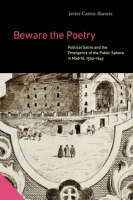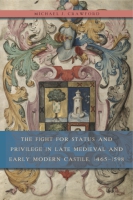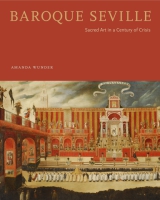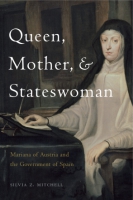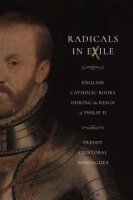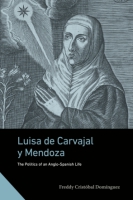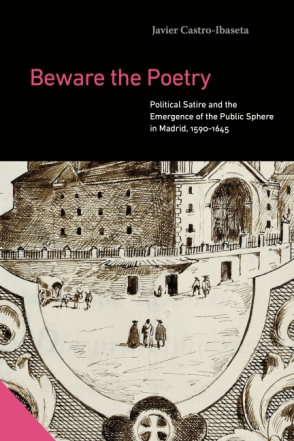
Beware the Poetry
Political Satire and the Emergence of a Public Sphere in Madrid, 1595–1643
Javier Castro-Ibaseta
Beware the Poetry
Political Satire and the Emergence of a Public Sphere in Madrid, 1595–1643
Javier Castro-Ibaseta
“Castro-Ibaseta draws on a corpus of four hundred printed and manuscript poetic satires to argue that the production and circulation of satirical poetry is evidence of a high level of political awareness on the part of residents of Madrid's 'public sphere.' Beware the Poetry is a tour de force written by a daring and nimble thinker whose erudite analysis of the role of literary texts in politics is unparalleled in the field.”
- Description
- Reviews
- Bio
- Table of Contents
- Sample Chapters
- Subjects
Exploring a rich trove of mostly anonymous satirical works, together with newsletters, sermons, and plays, Javier Castro-Ibaseta reconstructs the experiences of Madrilenians during the reigns of Philip III and Philip IV. Castro-Ibaseta proposes an original theory of political publics that corrects approaches that assume early modern Spain’s public sphere mirrored the politics of England or France. Instead, he shows that in Spain publicness was distinct because the satires—about the king’s favorite, and even about the king himself—were consumed for pleasure and entertainment. They did not create political communities or stir rebellious movements. Read diachronically, the long, continuous, evolving collection of satires reveals not just the opinions of the poets but something far more difficult to reconstruct: the shifting demands, interests, uncertainties, and worldviews of the audience—that is, the structure and dynamics of Madrid’s emerging public sphere.
Applying an interdisciplinary approach of literary criticism and historical method, Beware the Poetry presents an exciting new take on politics and poetry during the period often referred to as the Spanish Decadence. It will be of special interest to scholars of early modern politics and Spanish literature and culture.
“Castro-Ibaseta draws on a corpus of four hundred printed and manuscript poetic satires to argue that the production and circulation of satirical poetry is evidence of a high level of political awareness on the part of residents of Madrid's 'public sphere.' Beware the Poetry is a tour de force written by a daring and nimble thinker whose erudite analysis of the role of literary texts in politics is unparalleled in the field.”
Javier Castro-Ibaseta is Assistant Professor in the Department of Spanish and Portuguese Studies at Rutgers University–Newark.
List of Illustrations
Acknowledgments
Introduction: “Ponder My Story in Awe”
Act I: Theater
1 “Admirable Theater”: Madrid and the Making of a Public, 1561–1618
2 “Courtly War”: Satires from the Royal Court to the Mentideros, 1598–1618
3 “The News Are Comedy”: Theater, Satire, and News, 1618–1621
Act II: Carnival
4 “Tarabillas”: The Politics of Satire, 1621–1630
5 “Zealous and Piquant”: Sermon, Satire, and the Public, 1629–1633
6 “Extravagant Clock”: The Carnival of Politics, 1633–1642
7 “We Turn Misfortunes Upside Down”: Olivares’s Long Carnival, 1642–1643
Conclusion: “More Than Pasquinades”
Notes
Bibliography
Index
Mailing List
Subscribe to our mailing list and be notified about new titles, journals and catalogs.
